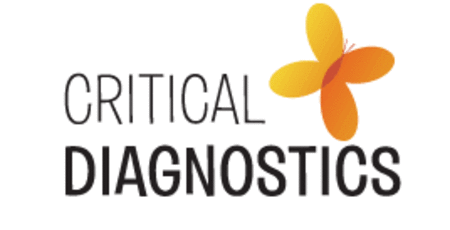Critical Diagnostics’ novel cardiac biomarker, ST2, could offer a way for doctors to monitor transplant patients versus expensive and risky biopsies
Critical Diagnostics announced on May 22, 2013, the recently-published results of a Utah Transplantation Affiliated Hospitals Cardiac Transplant Program study involving the use of a novel biomarker, ST2, to monitor heart transplant patients for rejection. Subjects with the highest levels of ST2 had a more than 3-fold increase in the risk for death than those with the lowest ST2 levels. Moreover, this risk was present early and sustained from the time of initial blood draw to many years forward.
Just over 45 years ago, on December 3, 1967, Dr. Christian Barnhard transplanted the first human heart into 53-year old Lewis Washkansky, a South African grocer dying of chronic heart disease. After his surgery, Washkansky was given drugs to suppress his immune system, but they also left him vulnerable to deadly infections. He died 18 days later from double pneumonia.
Medicine has come a long way since then. Worldwide, over 3,500 heart transplants are performed annually, more than half in the U.S. Post-transplant survival rates now average 15 years, yet rejection and death are still all too common.
Currently, biopsy-driven diagnoses are used to predict transplant organ rejection, but this type of procedure is costly, involves risk, and offers little consideration of the underlying biological processes that predict the presence or severity of rejection and/or likelihood of adverse consequences.
In the ST2 study (“Interleukin receptor family member ST2 concentrations in patients following heart transplantation”), a total of 241 transplant patients were followed for a period of just over 7 years, during which time there were 62 deaths, or some 25 percent. The prognostic ability of ST2 was examined for both rejection and death. ST2 concentrations were measured approximately a month after transplantation and found to be highly predictive of short-, intermediate-, and longer-term outcomes.
“A monitoring strategy for the rejection that directly relates to its underlying pathophysiology would be an attractive choice,” notes the study authors. “Biomarkers reflective of rejection are an option . . . a novel biomarker candidate worthy of consideration for this application is ST2.”
sST2 has been published in more than 100 peer-reviewed articles and scientific posters studying more than 40,000 patients. Critical Diagnostics holds numerous issued and pending international patents on ST2. The Presage® ST2 Assay from Critical Diagnostics is the only commercially available ST2 biomarker in the world. The Presage ST2 Assay has been CE Marked and cleared by the U.S. FDA for use as in the risk stratification of chronic heart failure patients.
Source: Critical Diagnostics
Critical Diagnostics announced on May 22, 2013, the recently-published results of a Utah Transplantation Affiliated Hospitals Cardiac Transplant Program study involving the use of a novel biomarker, ST2, to monitor heart transplant patients for rejection. Subjects with the highest levels of ST2 had a more than 3-fold increase in the risk for death than those with the lowest ST2 levels. Moreover, this risk was present early and sustained from the time of initial blood draw to many years forward.
Just over 45 years ago, on December 3, 1967, Dr. Christian Barnhard transplanted the first human heart into 53-year old Lewis Washkansky, a South African grocer dying of chronic heart disease. After his surgery, Washkansky was given drugs to suppress his immune system, but they also left him vulnerable to deadly infections. He died 18 days later from double pneumonia.
Medicine has come a long way since then. Worldwide, over 3,500 heart transplants are performed annually, more than half in the U.S. Post-transplant survival rates now average 15 years, yet rejection and death are still all too common.
Currently, biopsy-driven diagnoses are used to predict transplant organ rejection, but this type of procedure is costly, involves risk, and offers little consideration of the underlying biological processes that predict the presence or severity of rejection and/or likelihood of adverse consequences.
In the ST2 study (“Interleukin receptor family member ST2 concentrations in patients following heart transplantation”), a total of 241 transplant patients were followed for a period of just over 7 years, during which time there were 62 deaths, or some 25 percent. The prognostic ability of ST2 was examined for both rejection and death. ST2 concentrations were measured approximately a month after transplantation and found to be highly predictive of short-, intermediate-, and longer-term outcomes.
“A monitoring strategy for the rejection that directly relates to its underlying pathophysiology would be an attractive choice,” notes the study authors. “Biomarkers reflective of rejection are an option . . . a novel biomarker candidate worthy of consideration for this application is ST2.”
About ST2
ST2 is a member of the interleukin (IL)-1 receptor family, whose expression in cardiomyocytes is upregulated in response to stress. The membrane-bound form of ST2 interacts with IL-33 (released from fibroblasts), leading to anti-hypertrophic and anti-fibrotic effects in the myocardium. Soluble ST2 (sST2) consists of the extracellular domain of the ST2 molecule, and may act as a decoy receptor for IL-33, blocking myocardial and vascular benefits, experimentally leading to progressive myocardial remodeling and atherosclerosis, respectively. In in vivo studies, infusion of large amounts of soluble sST2 results in adverse cardiac remodeling, heart failure, and premature death. Clinical studies have further shown that the prognostic information from sST2 is independent of, and provides added information and value to, that of cardiac biomarkers commonly used today.sST2 has been published in more than 100 peer-reviewed articles and scientific posters studying more than 40,000 patients. Critical Diagnostics holds numerous issued and pending international patents on ST2. The Presage® ST2 Assay from Critical Diagnostics is the only commercially available ST2 biomarker in the world. The Presage ST2 Assay has been CE Marked and cleared by the U.S. FDA for use as in the risk stratification of chronic heart failure patients.
Source: Critical Diagnostics
Latest Articles
transplantation, Biomarkers, CriticalDiagnostics
Critical Diagnostics’ novel cardiac biomarker, ST2, could offer a way for doctors to monitor transplant patients versus expensive and risky biopsies Cri...

























